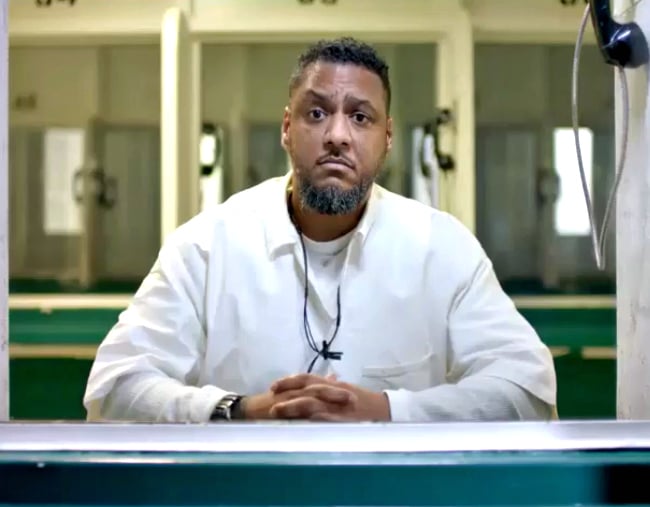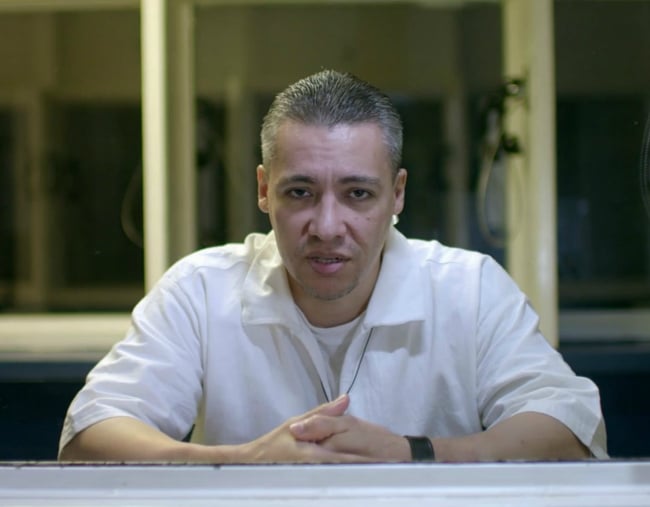
On August 14, 1996, Kenneth Foster, DeWayne Dillard, Julius Steen and Mauriceo Brown were ‘club hopping’ their way through San Antonio, Texas.
They’d been drinking, smoking dope and mugging random people on the street for fun, but at the time when everything went wrong they were on their way to the club.
They knew they would eventually end up somewhere, a now-42-year-old Kenneth tells the camera, pulling on his greying beard, struggling to make sense of that night 22 years ago. They just didn’t know where.
For a reason Kenneth says he can’t recall, he drove their white rental Chevy Cavalier down a winding back road of a quiet local neighbourhood. Those who live in the area say it would be impossible to just happen upon that road. There were no clubs there. You had to know where you were going.
Tired of robbing people, they’d made $300 by that stage, the four young men were ready to spend their spoils. Then, they spotted an attractive woman, Mary Patrick, driving down the residential street.
Kenneth says they pulled over in front of the LaHood residence, and a drunk Mauriceo got out of the car to try and pick her up – by the way she was dressed, they assumed she was a prostitute.
Another young man, Micheal LaHood, then appeared at her side. Even though she was holding her own, brushing off Maurico’s advances, Michael told her to go inside where it was safe.
Seconds later, a river of blood ran down the driveway. Michael lay dead in his own driveway, shot in the face at point-blank range.


Top Comments
Almost without exception each inmate had a terrible upbringing - childhood photos of them as children with optimistic smiles are truly heartbreaking. This series is mesmerising, and with most crimes committed when the men were teenagers, seeing how lives can be so badly impacted from a terrible teenage decision clearly haunts all affected parties. It is surprisingly moving, beautifully directed and highly recommended!
Good summary of the show. In my mind, capital punishment is just wrong - it has been demonstrated to not be a deterrent.
Indeed, as demonstrated in at least one of the cases analysed in this show, capital punishment as an option actually led to a murder being committed. The guy didn’t like his life sentence, so popped someone to get the death penalty.
Murder - premeditated by the State in the name of punishment - is still murder in my eyes. Which makes governments which use the death penalty no better than the people they have subjected to it.
And let’s not get started on the “oops, sorry” cases where more advanced forms of analysis and evidence appraisal have later determined as innocent the person put to death. What justification works in those circumstances?